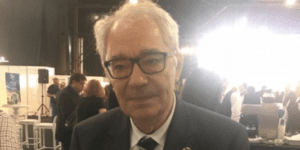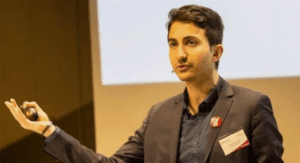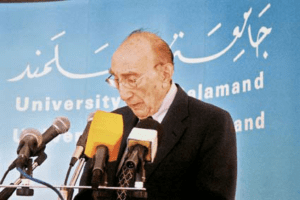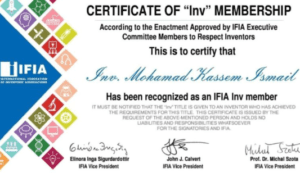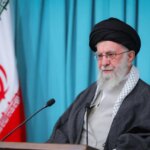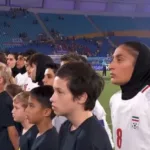
Who is Nawaf Salam?
He was born on December 15, 1953, in Beirut to a well-known political family. His father, Abdullah Salam, was one of the founders of Middle East Airlines, the Lebanese national airline, and represented the family on its board of directors between 1956 and 1983.
Salam is married to Sahar Baassiri, a journalist and Lebanon’s ambassador to UNESCO, and has two sons, Abdullah and Marwan.
His grandfather, Salim Ali Salam, was the mayor of Beirut, a member of the Ottoman “Mebu’han” Council in Istanbul, and one of the founders of the “Reform Movement in Beirut” that opposed Turkish policy in the East. According to the newspaper An-Nahar, he was also a member of the Great Arab Government established by King Faisal bin Hussein and the director of its office in Beirut.
His uncle is Saeb Salam, who headed the Lebanese government 4 times between 1952 and 1973, and his cousin Tammam Salam headed the government in 2014 and 2016.
the study
He began his academic career by obtaining a diploma from the School of Graduate Studies in Social Sciences in Paris in 1974, then a doctorate in history from the Sorbonne University in Paris in 1979.
He then obtained a BA in Law from Beirut University in 1984, a Master of Laws from Harvard Law School in 1991, and a PhD in Political Science from the Institute of Political Studies in Paris in 1992.
Career path
He began his legal career in 1984 as an appellate attorney, a member of the Beirut Bar Association, and a consultant and representative for several international, local, public, and private bodies in Beirut during two periods (1984-1989) and (1992-2007). He also worked in Boston, USA, as a legal representative for several international institutions during the period 1989-1992.
Before that, he had embarked on a career in academia, serving as a lecturer at the Sorbonne from 1979 to 1981, where he taught contemporary Middle Eastern history, and in 1981 as a visiting fellow at the Weatherhead Center for International Affairs at Harvard University. From 1985 to 1989, he lectured at the American University of Beirut.
After returning to Beirut in 1992, he worked as a lawyer at Takla Law Firm, and in parallel with his law practice, he began teaching international law and international relations at the American University of Beirut and headed the Department of Political Studies and Public Administration at the same university in the period 2005-2007.
He also worked as a lecturer at several universities, including Harvard Law School, Columbia University School of International and Public Affairs, the International Peace Institute in New York, Yale Law School, the University of Freiburg in Germany, Boston University, and at Arab universities in Rabat, Cairo, and Abu Dhabi.
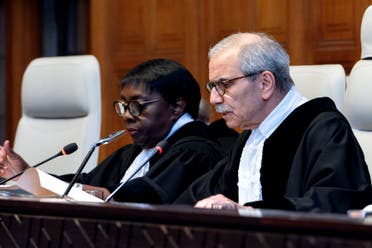
Nawaf Salam (AFP archive)
He was elected as a member of the Executive Office of the Economic and Social Council in Lebanon between 1999 and 2002. The mission of this council was to provide advice, suggestions, and recommendations on projects of an economic and social nature that it received from the government.
In 2005, the Lebanese Council of Ministers appointed him as a member and rapporteur of the National Commission for Reforming the Electoral Law, where he contributed to preparing a draft of a new electoral law after Syria ended its military presence in Lebanon.
This body, known as the “Boutros Committee” after its chairman, the late Minister Fouad Boutros, submitted a draft law in 2006 that included many reforms, most notably the adoption of a mixed electoral system that elects 77 representatives according to the majoritarian system and 51 according to the proportional system.
President of the International Court of Justice
Salam was elected President of the International Court of Justice in The Hague in February 2024 for a three-year term after the end of the term of US President Judge John Donoghue, becoming the second Arab to head this court since its establishment in 1945.
In 2018, he joined this court, which consists of 15 judges elected by the Security Council and the General Assembly of the United Nations.
veteran diplomat
– Ambassador and Permanent Representative of Lebanon to the United Nations between 2007 and 2017 and its representative in the Security Council.
– President of the Security Council between May 2010 and September 2011.
– Vice-President of the 67th session of the United Nations General Assembly from September 2012 to September 2013.
– Representative of Lebanon to the United Nations Economic and Social Council in 2016 and 2018.
– He was a member of the Security Council field missions to several countries such as Ethiopia, Sudan, Kenya, Uganda, and Afghanistan.
His writings
He has many publications and articles in the fields of international and constitutional law, politics and history, including:
– “Possible Reform and Desired Reform, Research and Articles on the Lebanese Crisis” University Foundation for Studies and Publishing in 1989.
– “Beyond Taif: Articles on the State and Reform” in 1998.
– “Taif Agreement, Critical Review” in 2003.
– “Options for Lebanon”, a joint book published in 2004.
– “Lebanon in the Security Council 2010-2011” in 2013.
– “Lebanon between Yesterday and Tomorrow” in 2021, published in two versions in Arabic and French.






